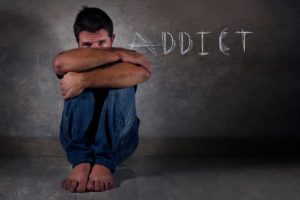Those who struggle with post-traumatic stress disorder, also known as PTSD, are a lot more susceptible to addiction. In fact, more than 2 out of 10 veterans who have PTSD also suffer from substance use disorders, according to the U.S. Veterans Affairs.
Also, up to 75% of the people who have gone through a violent, traumatic event develop symptoms of alcoholism while about 33% of those who have gone through traumatic situations such as car accidents or serious illness show symptoms of alcohol dependence.
Needless to say, many of the individuals who are living with the effects of post-traumatic stress disorder are at risk for developing an alcohol abuse problem. There are many people who have experienced troublesome situations in their lives. As a result of these occurrences, countless individuals have begun to deal with the negative effects of PTSD.
Post-traumatic stress disorder can cause people to become overwhelmed as the disorder often causes serious changes in people’s lives. PTSD affects the individual as well as his or her family members and friends. In an attempt to cope with the discomfort of post-traumatic stress disorder, some individuals turn to alcohol. Unfortunately, this often leads to alcohol abuse and addiction.
There is much to learn about PTSD and alcohol addiction. And, if you or someone you love is suffering from PTSD or alcoholism, it is best to learn about the connection between these two conditions and how they can negatively affect those who are dealing with them.
What Is PTSD: Symptoms and Effects
Psychologists are continuing to research and learn more about PTSD and the effects that it can have on our behavior and cognition.
It was formerly known as “shell shock” because of the high rate of veterans coming back from war with the disorder. However, while PTSD is commonly associated with war, veterans are not the only people diagnosed with the disorder.
There have been many developments in the understanding of PTSD, its causes, and its symptoms.
PTSD is a lasting disorder in the aftermath of a traumatic event. It can present itself in many ways, including symptoms like:
- Anxiety
- Depression
- Self-destructive behavior
- Social isolation
- Insomnia
Unfortunately, the list goes on. It can last a lifetime, as it is not curable, but the effects can be managed with proper treatment.
People who are suffering from PTSD often get flashbacks and nightmares about the traumatic event they experienced, reliving it repeatedly. This can exacerbate the other symptoms, making them last longer.
All of these symptoms and more can lead a person to self-medicate, most commonly in the form of alcohol use. As a result of this dependence on alcohol, many people develop alcohol addiction problems.
Understanding Alcohol Addiction and Its Symptoms
Less than 1 out of 10 Americans suffer from alcohol addiction, yet alcohol use is still the third leading preventable cause of death in the U.S., with only 11 percent of people with alcoholism receiving treatment.
For many reasons, people are more susceptible to alcohol addiction under high levels of stress. Some use it to help with insomnia or as a way to escape from unwanted thoughts. Whatever the reason for the abuse, alcohol addiction can lead to horrifying effects, including:
- Liver disease
- Kidney disease
- Depression
- Alcohol poisoning
With more risks and so few addicts receiving treatment, it is important to stay informed about the risks and take preventative measures.
Any mental health disorder can lead to substance abuse disorders, so treatment for mental health should be a top priority before any other issues are caused.
People suffering from alcohol addiction who attempt to treat it themselves risk lethal withdrawal symptoms. Alcohol withdrawal symptoms are often very intense and even potentially dangerous. So, it is absolutely important for those who desire to end alcoholism to receive specialized medical treatment as they withdraw from substance use.
5 Surprising Things About PTSD and Alcohol
While it is clear that there is a direct link between PTSD and alcohol use, there are some facts about the two that you may not know.
- PTSD occurs more often than many people believe.
Post-traumatic stress disorder can develop from any type of trauma that you can experience, and those traumatic events are more common than you may think. In fact, an estimated 70% of American adults have experienced a traumatic event in their lives. The most common being:
- Violent assault
- Sexual assault
- Natural disasters
- Military combat
- Childhood abuse
Not everybody is affected by PTSD after a traumatic event, but an astonishing amount of people are at risk. An estimated 5% of Americans, or over 13 million, are affected by PTSD at any given time, with 8% likely to develop it in their lifetime.
- Certain people are more susceptible.
Certain demographics are more likely to develop PTSD or alcohol addictions than others.
Women are more susceptible to PTSD than men, going against the misconception that only men in the military develop PTSD. Sexual trauma is believed to be the more likely cause of PTSD than any other trauma.
That is especially troubling considering that 1 in 5 women will experience sexual assault in their lives, compared to 1 in 71 men. Not only that, but alcohol use is also on the rise in the U.S. for both women and minorities. The number of teens using alcohol is also on the rise, with 7.7 million people between ages 12 and 20 reporting to use alcohol at least once in their lives.
More research is needed to understand why these demographics are using alcohol at higher rates. However, this is especially troubling because alcohol kills more teenagers and young adults than all other controlled substances combined. Alcohol also accounts for 30% of driving fatalities for this age range.
- Symptoms of PTSD Can Take Years To Develop
It’s easy to assume that the symptoms of PTSD develop quickly after a traumatic event occurs. But, the symptoms of PTSD may not appear until much later, making the diagnosis trickier. Some people do not experience any symptoms until years later. This often causes them to think something else is wrong.
It can be difficult for people to understand what is truly happening in their lives when the symptoms and signs of PTSD finally appear. Since, in many cases, the signs of this disorder show themselves long after the traumatic event occurred, individuals may not realize that the symptoms they’re experiencing are directly related to the event that happened in their lives.
Far too often, this leads people to become frustrated with themselves, confused by the way they feel and behave. Their loved ones, including close friends and family members, may also become disturbed and confused by their loved one’s behavior.
Perhaps, symptoms of PTSD such as irritability, aggression, recklessness, and self-destructive actions cause families to become alarmed and concerned for their loved ones. But, since the individual has not yet been diagnosed with post-traumatic stress disorder, many families are unsure about how to help their loved one.
Again, the confusion and fear that undoubtedly comes with the signs of PTSD can cause people to self-medicate, using alcohol in order to escape from the pain and discomfort they’re experiencing. Sadly, this happens in many situations, resulting in the high number of individuals facing PTSD and alcohol dependence or addiction.
- People who have PTSD are often less likely to get treatment.
PTSD that is left untreated is an unfortunate situation that commonly leads to substance abuse.
People who are suffering from this disorder are less likely to get treatment for addiction because they may not understand that they are, in fact, dealing with an addiction problem. Unfortunately, when you use alcohol or other substances as the solution to the problem, you are less likely to see the substance use itself as a problem.
- You do not have to pick one or the other when it comes to treatment.
People who are suffering from PTSD and alcohol addiction do not have to choose to treat one problem at a time. Many treatment centers, including ours here at Northbound Treatment Services, offer programs that can treat both problems.
Dual diagnoses treatment programs are available to help people who are living with the effects of substance use disorder as well as a mental health disorder like PTSD. Evidence-based therapies are incorporated into these treatment programs in order to treat both disorders over the same period of time. This just might be the most effective way to get your life back on track and live a life that is free from the negative effects of alcoholism and post-traumatic stress disorder.
Next Steps
It is clear that PTSD and addiction are very serious disorders that need to be treated professionally. For people struggling with PTSD and alcohol abuse, it is critical to get treatment as soon as possible.
The longer the problems continue, the more damage they can cause. If you or a loved one could benefit from residential treatment, don’t wait. Find the right treatment plan today.
Author
-

President, CEO & Founder at Northbound Treatment Network
Paul Alexander is the CEO, President & Founder of Northbound Treatment Network in Newport Beach, California. He believes wholeheartedly in transformational leadership, organizational health and effective, fully integrated substance use disorder and mental health treatment. With over 27 years of experience in behavioral healthcare, Paul has extensive knowledge of “in vivo” treatment modalities, clinical development, operations, strategy, marketing and financial planning. He has been widely recognized for his development of collegiate-based residential treatment programs for students in recovery and authored a research study at The University of California confirming this modality’s effectiveness.
Paul’s comprehensive professional experience, willingness to innovate, and emphasis on organizational health are vital factors in Northbound’s continued success. Paul received his Certified Addiction Treatment Specialist training at Saddleback College in Mission Viejo, CA, and was awarded Outstanding Alumni Service Award in 2002. Paul holds a Bachelor of Arts degree in Criminology, Law and Society, Summa Cum Laude, from University of California, Irvine, and a Juris Doctorate degree from Loyola Law School of Los Angeles. Paul currently serves on The National Association of Addiction Treatment Providers (NAATP) board. In addition, he serves on The Family Recovery Foundation board and The CarePossible board in Orange County; both organizations are committed to raising funds for family recovery and treatment for former military personnel. Paul is in recovery himself and lives in Orange County with his wife Silvana and his two young sons, Noah and Dean.










